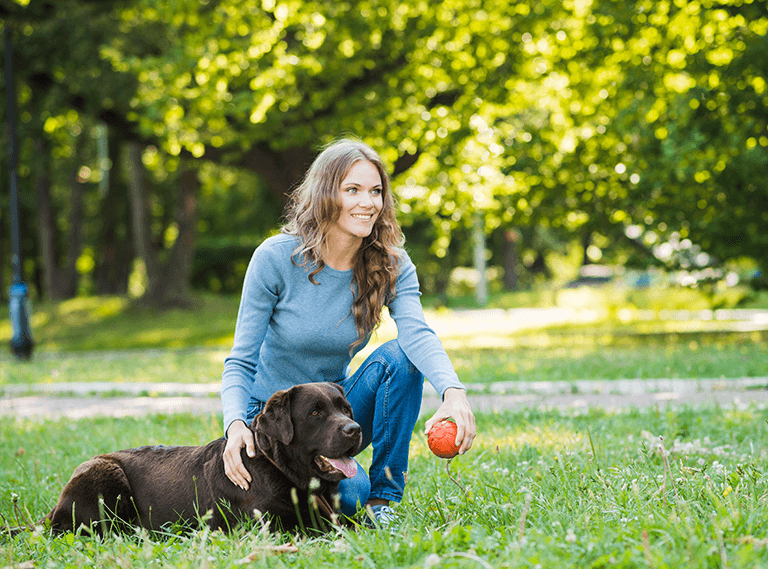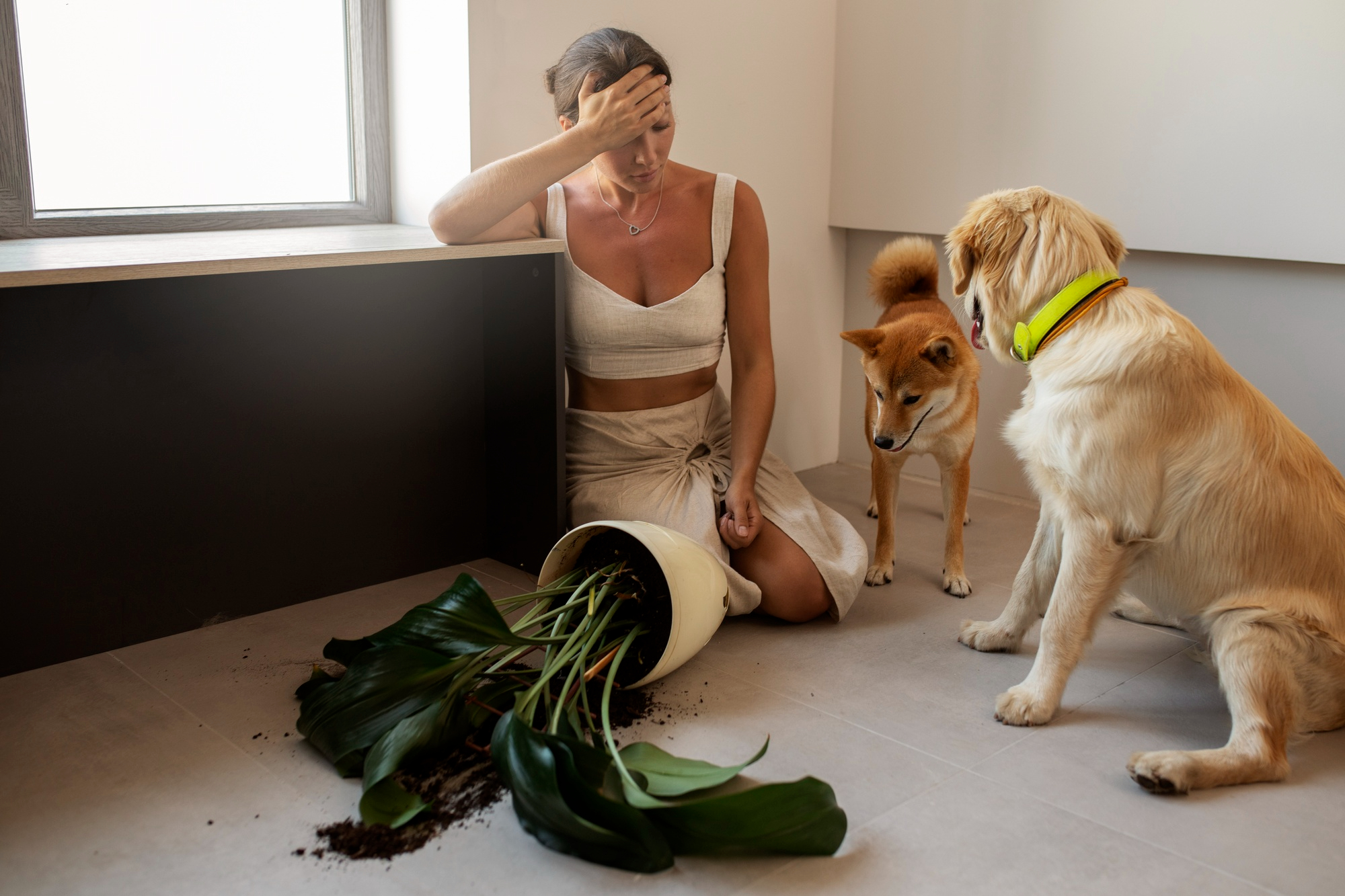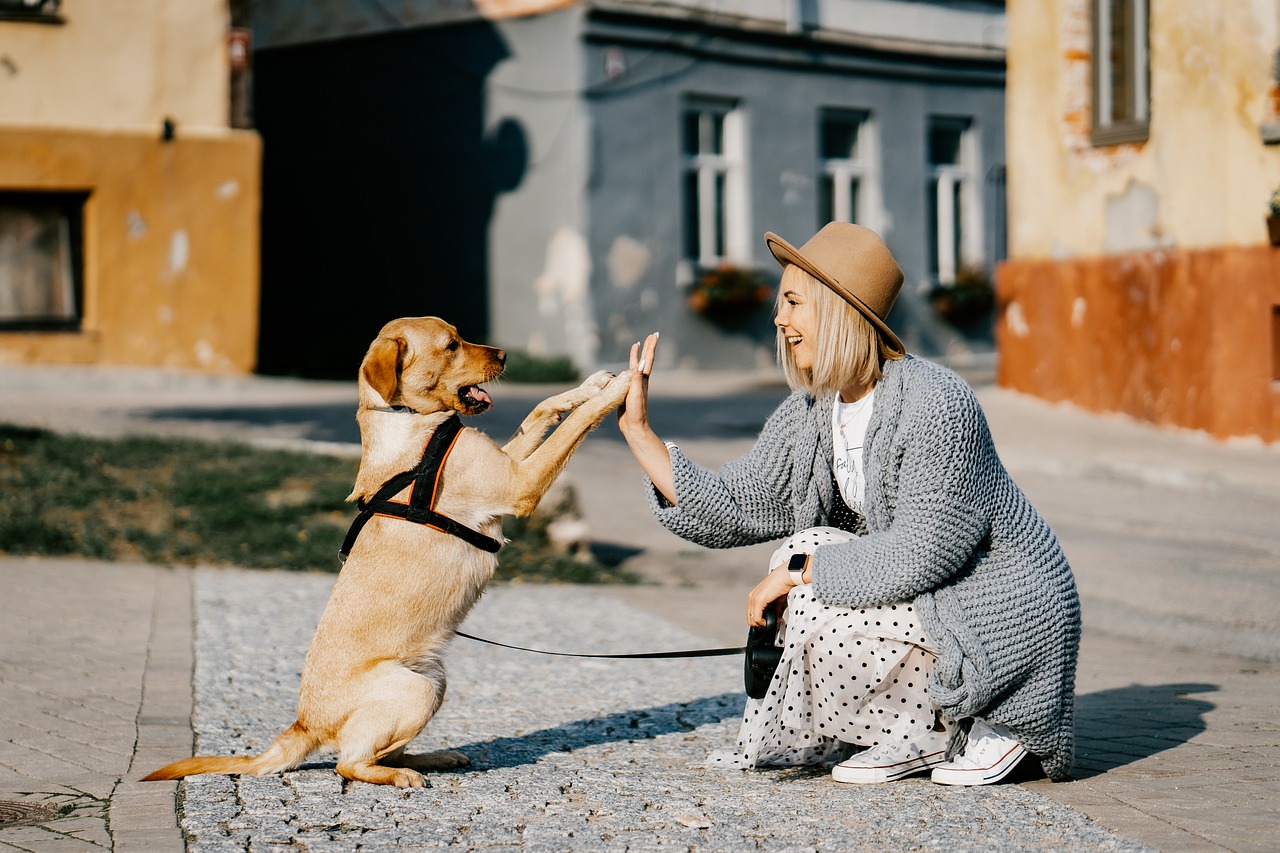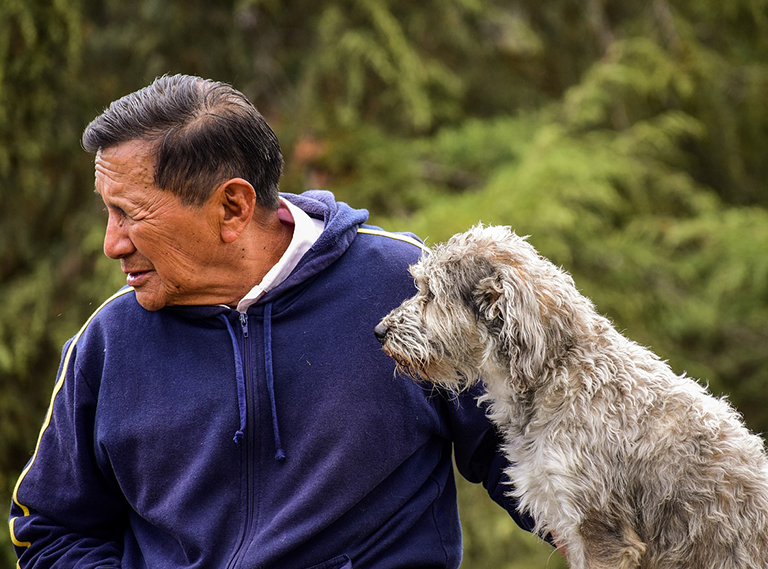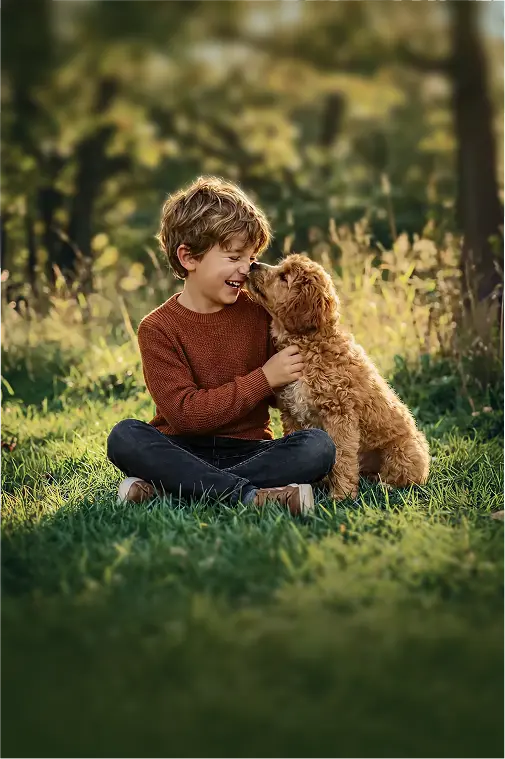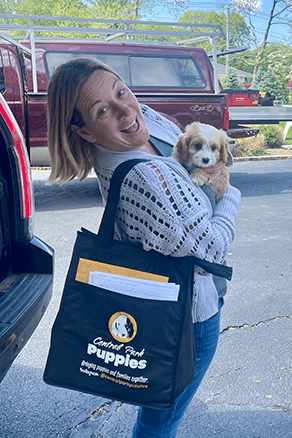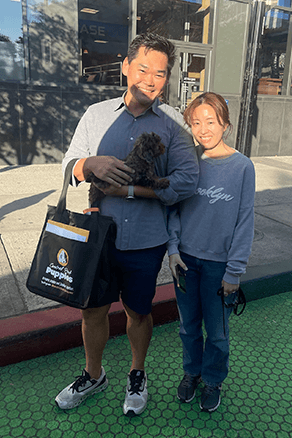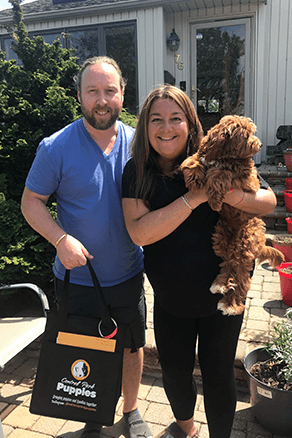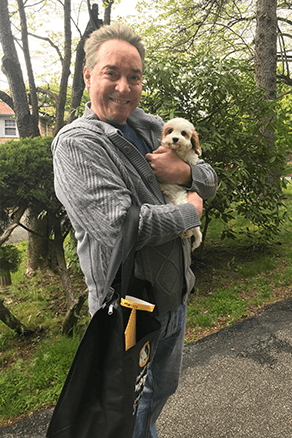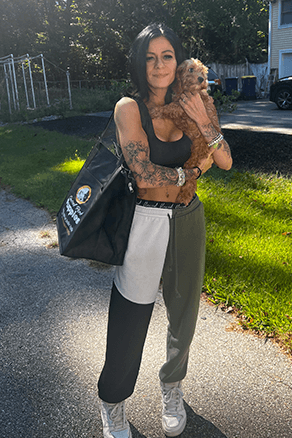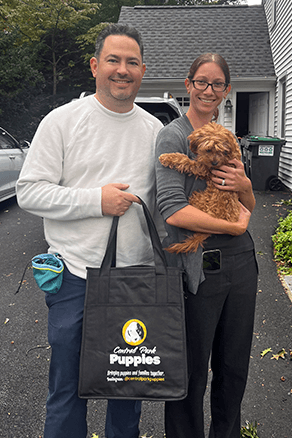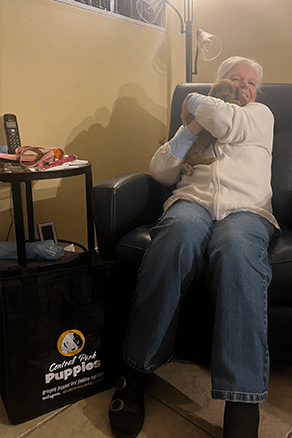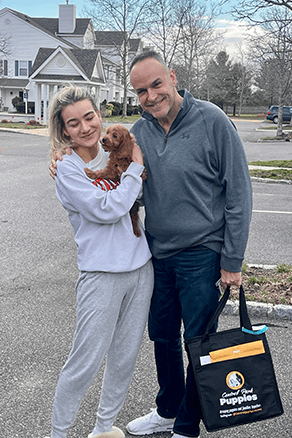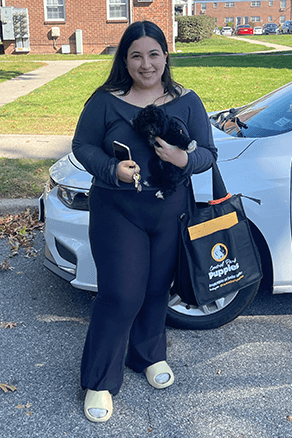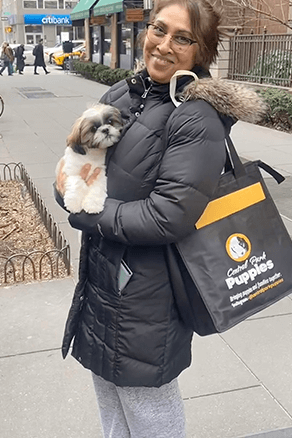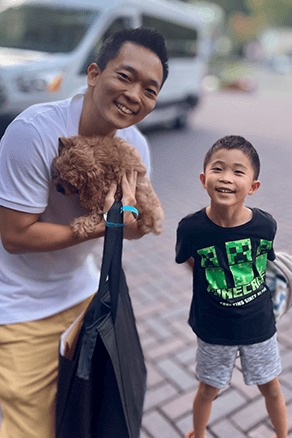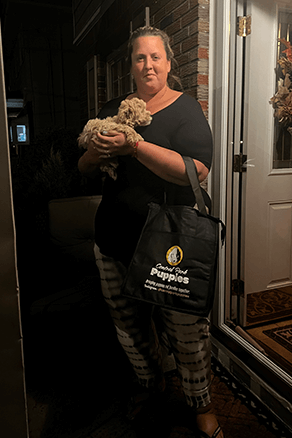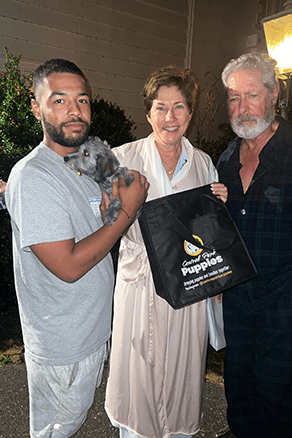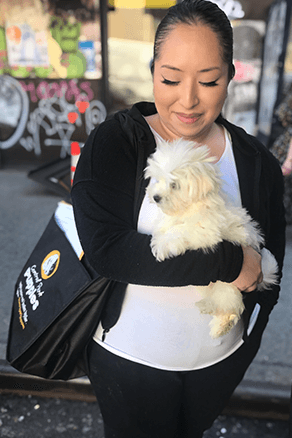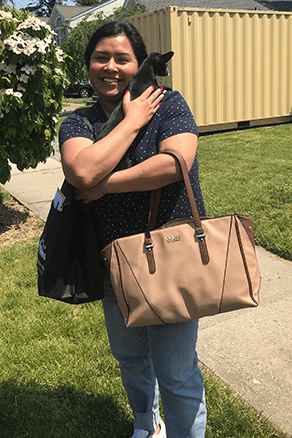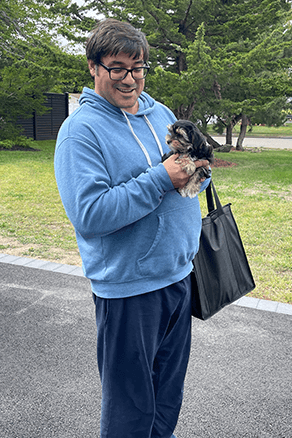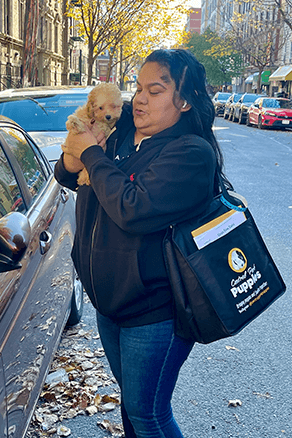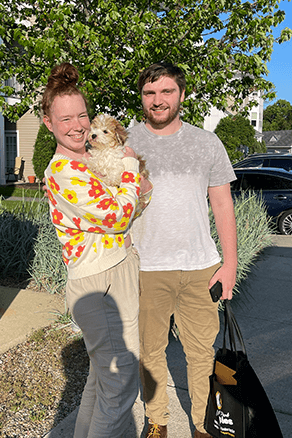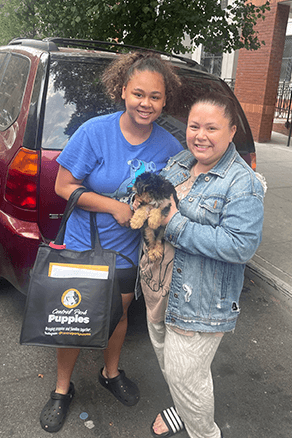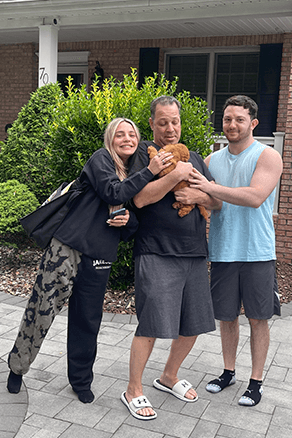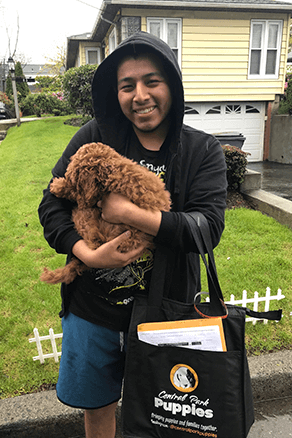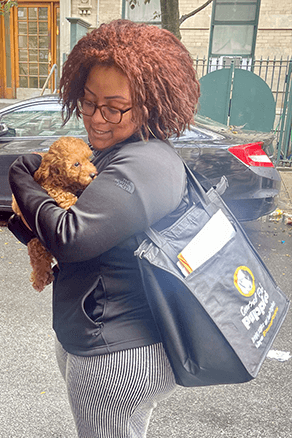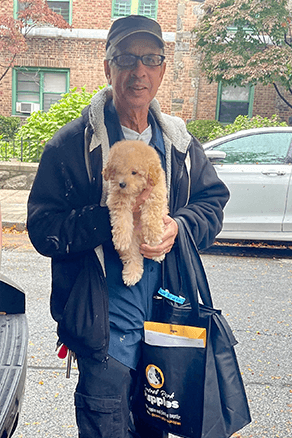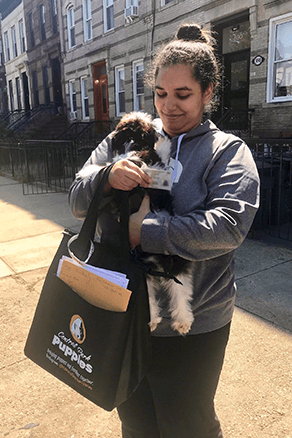Are you a proud new puppy owner wondering when the best time to start training is? If so, you’re in luck! This article provides essential advice for all new pet parents to answer the question: when can you start puppy training?
We discuss what age your pup should be when beginning classes or crate training and the importance of early socialization with other puppies and dogs. We also talk about how long it takes for puppies to learn basic obedience commands and tips on teaching them potty-training skills. Finally, we look at creating a positive reinforcement system to help get your pup on the right track. So let's get started!
The importance of puppy training
Puppy training is an integral part of a puppy's life. It helps to create a strong bond between the puppy and its owner while teaching the puppy good behavior and manners. Training sessions should start as soon as possible, ideally when the puppy is around eight weeks old. During these early stages, it is essential to focus on obedience training and socialization.
Common questions new pet owners have about when to start training their puppies
Inexperienced pet parents often have many questions about puppy training, including
When can you start puppy training classes?
The answer depends on a few factors, including your pup's age and the type of training you are interested in. Puppies should be at least eight weeks old before starting formal training, such as classes or crate training. During this socialization period, expose your pup to other puppies and dogs and new sights, smells, and sounds.
How long does it take for puppies to learn basic obedience commands?
Most puppies can learn basic obedience commands within a few weeks. However, this may vary depending on your puppy's age and breed. If your puppy is older, understanding and responding to commands may take longer.
What training methods are best?
When training your puppy, use positive reinforcement to create trust. Try not to punish your dog for not understanding commands, as this can lead to more extended training periods and may cause your puppy to become fearful. Instead, reward them with treats or verbal praise when they are successful.
What is the best age for crate training?
Most puppies can begin crate training when they come home, meaning around eight weeks old. Limit their time in the crate to a few hours and provide plenty of soft bedding and toys. Also, be sure to take your pup outside for potty breaks regularly. With patience and consistency, your pup will soon learn to love their crate!
What should I do to train my puppy at home?
You can teach your puppy basic obedience commands and impulse control at home. Start by teaching them how to sit in a sitting position using treats as a reward. You can also teach them to stay, come when called, and walk on a leash. Finally, create a daily routine for exercise and naps.
When to Start Puppy Training
Puppy training should start as early as eight weeks old, focusing on basic obedience and socialization commands.
The optimal age to start training a puppy
Between eight and sixteen weeks of age, puppies are ready to learn basic obedience commands and socialize with other dogs and people.
Factors to consider when determining when to start training
Training puppies early is vital for establishing a solid bond between the pup and its owner and teaching good behavior before bad habits form.
The benefits of starting early
Puppy training early has many benefits, including:
- Establishing a strong bond between you and your puppy
- Teaching your puppy basic commands and behaviors that will help them become well-mannered dogs
- Socializing your puppy to reduce fear or aggression
- Avoiding bad habits by teaching appropriate behaviors from the start
- Setting up a routine that will help them adjust to their new home quickly
- Developing trust and respect between you and your pup
- Allowing for more time for advanced training in the future, such as agility or obedience competitions
- Building confidence in both you and your pup as you learn together
Early Training: What to Focus On
It is crucial to start puppy training as early as possible, ideally as soon as your pup arrives in their new home.
Socialization and exposure to new experiences
- Start training and socializing your puppy from the moment you bring them home.
- Puppies must learn about various people, animals, sights, sounds, and environments from a young age to create positive associations.
- Attend puppy kindergarten and other training classes during this socialization period. Introduce your puppy to car rides as early as possible.
- Reduce motion sickness in young puppies by introducing car rides gradually.
Basic commands and obedience training
- Train your puppy basic commands such as “sit,” “stay,” and “come.”
- Use positive reinforcement methods by rewarding your puppy with treats and verbal praise when they get it right.
- Practice basic commands in different places, such as the backyard or the park.
- Teach your puppy basic obedience skills, such as not jumping on people or other dogs.
- Train them to respond to commands such as “Leave it” or “No bark.”
Potty training and housebreaking
- Start potty training and housebreaking as soon as possible.
- Create a routine that includes feeding, potty breaks, playtime, and naps.
- Establish a designated potty area outside and reward your pup when they go in the right spot.
- Be consistent with your training and positive reinforcement.
- If accidents happen, be sure to clean them up with an enzymatic cleaner to get rid of the smell.
- Clean up messes as soon as possible to prevent your pup from going in the same spot again.
- Reward your puppy with treats and verbal praise when they succeed.
- Take your pup outside at least every two hours to prevent accidents inside the house.
- Watch for signs that your pup needs to go.
Crate training and leash training
- Introduce your pup to their crate. Start by leaving the door open and placing a few treats inside.
- Put bedding in the crate and make it comfortable for your pup.
- Practice taking them out on walks with a leash and harness.
- Be sure to reward them with treats and verbal praise when they walk nicely on the leash.
- Teach your pup to sit and stay while using the harness or leash.
- Have them practice walking in a sitting position with the leash on.
- Know when to take breaks from training and give your pup time to relax.
Methods and Techniques for Successful Puppy Training
Puppy training can be challenging, but it will be worth it in the long run. It is essential to stay patient and consistent so your pup can learn the necessary skills for a happy and healthy life.
Positive reinforcement and clicker training
These are some of the best training methods for puppies. Rewards and treats should be used to encourage good behavior.
Consistency and repetition
For your pup to learn basic commands, it is important to have consistency and repetition. This means that you should practice the same command multiple times a day for the best results.
Patience and persistence
Training your pup can sometimes be frustrating, but it is essential to stay patient and consistent. This will help them learn faster and ensure they understand the correct behaviors.
Avoiding punishment-based training methods
Punishment can cause fear and anxiety in your pup, which could lead to behavioral issues down the road. Instead, focus on positive reinforcement and rewards for good behavior.
Common Challenges and How to Overcome Them
There may be times when your pup doesn't respond to commands or misbehaves. This is normal, but it can be difficult for puppy parents. Here are a few pointers to help you get through your puppy's early months.
Puppy biting and chewing
Puppy biting and chewing is a natural behavior, but it can be annoying. To prevent this from happening, provide your pup with plenty of chew toys and avoid roughhousing.
Separation anxiety and crate training
Many puppies experience separation anxiety when their owners leave. This can be addressed by introducing them to their crate and providing plenty of comfort items like toys and blankets.
Jumping and barking
Puppies naturally want to jump and bark, but this can become a problem if not addressed. Teaching your pup to sit and stay when people come over can help to reduce jumping and barking.
Potty training accidents
Accidents are bound to happen when it comes to potty training. Patience and consistency again come into play here. Be sure to take your pup out frequently and reward them when they go in the right spot.
Behavioral issues and training regressions
Your pup may regress in their training every once in a while. Remember that consistency is key when it comes to training and setting expectations. Don't let setbacks discourage you!
Additional Tips for New Pet Owners
Raising a puppy can be a rewarding experience, but you need to know when and how to start training your pup so they grow into an obedient and well-mannered dog.
Starting with basic commands
Start with basic obedience commands when you begin. Some of the most popular are “sit,” “stay,” and “come.”
Keeping training sessions short and frequent
Your pup's attention span is limited, and they may become overwhelmed by longer training sessions. To help your pup learn faster, keep the sessions short and frequent.
Seeking professional training assistance when needed
If you are having difficulty training your puppy, it can be helpful to seek the assistance of a professional trainer who can help ensure your pup is on the right track and provide additional tips for training success.
Socialization
Introduce your puppy to new sights, sounds, and smells to help them become well-adjusted adults. Socialization can also help your pup learn impulse control.
Consistency in daily routines and expectations
Keeping a daily routine and setting expectations for good behavior can help your pup learn faster. Your dog knows what to expect when you are consistent with your expectations.
Positive reinforcement
Rewarding your pup for good behavior and praising them can help move their training along more quickly.
Closing Thoughts
New pet owners can take comfort in knowing that successful puppy training requires patience and dedication but is ultimately rewarding. Establishing a daily routine for potty breaks and providing positive reinforcement when your pup follows directions will help reinforce good behaviors. If you have difficulty with training, don’t hesitate to contact a professional dog trainer for additional guidance.
Good luck on this exciting journey—and if you know someone who could benefit from this information, please share the article with them.
FAQs
What is the first thing you should train your puppy?
The first thing to teach is basic commands such as "sit", "stay", and "come." Socialization is essential when puppy training and should be started when your pup is young.
When can I start training my newborn puppy?
Puppy training can start as early as 8-10 weeks old or when you bring your puppy home.
Is it better to get a puppy at 8 weeks or 12 weeks?
It's generally recommended that puppies stay with their mother until at least 8 weeks of age. Ensure your pup is healthy and has some socialization before bringing them home.
Should I ignore my puppy crying at night?
No. Respond to your puppy's needs and do not ignore them. If they are crying at night, they may need to go out to use the restroom or feel scared and need comfort. Responding to their needs helps your pup learn you are there for them.
How do you tell a puppy no?
The best way to tell them no is by using an even and firm tone of voice. Avoid yelling and using physical punishment, as this can confuse or damage your pup.
How long do puppies stay in the whelping box?
Puppies typically stay in their whelping box until they are around 4-6 weeks of age. After that, they should begin to socialize and learn basic commands.
Can I take my puppy to the dog park?
Taking a puppy to the dog park is generally not recommended until they have completed their full course of vaccinations. This ensures your pup is protected from potential illnesses or parasites they may encounter while there.
Can 2-week-old puppies poop on their own?
No. Puppies at this age can still not control their bowels or bladders and need help from their mother or another caretaker.
Can you train a puppy too early?
Training puppies too early can have adverse effects, as they need time to bond with their mother and littermates. It is recommended that training begins no earlier than 8-10 weeks of age. Additionally, puppies need to be adequately socialized before beginning formal training. This will help them develop strong social skills and fewer behavioral issues in the future.
What are the red flags when picking out a puppy?
When picking out a puppy, red flags include puppies that are not social or shy around others, puppies with discharge from their eyes or nose, puppies that are thin or malnourished, or puppies that show signs of injury. Additionally, you should ask the breeder questions about their breeding practices to ensure the puppies have had proper care.
Can a puppy sleep through the night at 8 weeks?
At eight weeks of age, puppies should be able to sleep through the night. However, they may need to go outside for potty breaks in the middle of the night. Crate training can help your pup learn to hold their bladder until morning.
What weeks are the hardest with a puppy?
Weeks 8-16 are usually the most challenging with a puppy. This is when they start learning basic commands, potty training, and socialization. Additionally, puppies may be more prone to teething or chewing during this time. To help make it easier, provide plenty of chew toys and have patience. When it comes to puppy training, the earlier you start, the better.
Should I let my puppy sleep with me?
Sleeping in the same bed as your puppy can be tempting, but it is usually best to avoid it. Allowing your pup to sleep with you may disrupt their sleep schedule and cause them to wake up at night, potentially making noise or running around.
Additionally, puppies can often chew on things at night or bark, which can be disruptive for both you and your pet. Instead, try providing a comfortable space or crate with a soft bed separate from your bed for them to sleep in.
What should you do the first night you bring a puppy home?
The first night you bring a puppy home is exciting but challenging. Before bringing your pup home, purchase the necessary supplies such as food, water bowls, a crate, toys, and treats.
Once you arrive home with your pup, give them time to settle in by providing love, cuddles, and praise. You can also start crate training and teach them basic commands to help them adjust.
